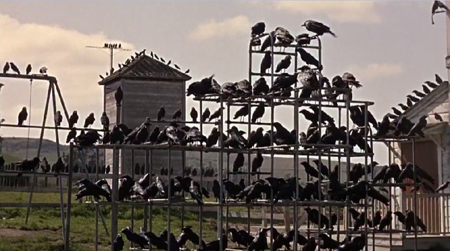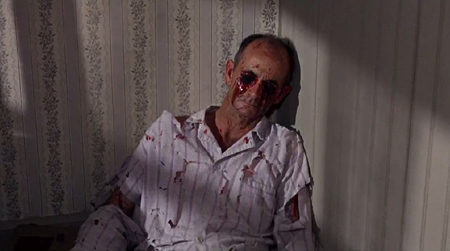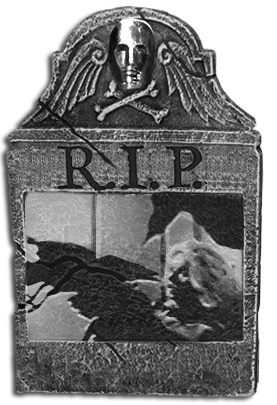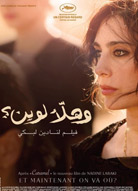Oscar Horrors: Bringing "The Birds" to Life
 Thursday, October 27, 2011 at 10:25PM
Thursday, October 27, 2011 at 10:25PM Here lies...The Birds, whose only Oscar nomination for Visual Effects were shot down by Cleopatra. The birds themselves are just resting, waiting to come back and haunt us all.
Amir here. Few horror films have had the long lasting effect of Hitchcock’s The Birds on my life. As a child – and I shamefully admit, well into my teenage years - I used to get scared really easily in the theatre. I’d turn all the lights in my house on after a horror film, just in case something was lurking in the dark. But I’d sleep on it and the morning after, I’d forget all about whatever it was that scared me: the serial killer, haunted toys or ghosts.
Thanks to Hitchcock's classic however, however, to this day I’m terrified of birds. I hate the way they strut around, looking at us with their soulless eyes. Some time in my childhood, it was The Birds that forever etched this frame in my memory.

Such is the power of cinema!
Like most Hitchcock films, The Birds doesn’t rely so much on the actual birds to scare us, but on the psychological horror that comes with the idea of the town’s takeover; the impending sense that at any minute another attack might start. But in those small bursts when we see the attacks, Hitchcock knocks it out of the park.
He used a combination of elements, from real birds on the set to archival footage, and from invisible nylon threads to yellow screen superimposition to achieve the effects that he wanted. The crew insisted on avoiding mechanical models for the most part and chose to use trained birds wherever possible. The result of the prolonged shooting period and the complex post-production is nearly impeccable. The birds look as alive and vicious as any animal I’ve seen on the screen.

Needless to say, almost fifty years later, some of these effects look a bit aged, but the impact they leave is still the same. The claustrophobic terror they inject in us is still as intense. And I’m sure there are other kids out there who think of Tippi Hedren’s helplessness in that attic every time they see a crow on the wire or a flock of gulls by the water.
Other Oscar Horrors...
Rosemary's Baby - Best Supporting Actress
The Swarm - Best Costume Design
Whatever Happened to Baby Jane -Best Actress in a Leading Role
The Birds - Best Effects, Special Visual Effects
The Fly -Best Makeup
Death Becomes Her -Best Effects, Visual Effects
The Exorcist -Best Actress in a Supporting Role
Rosemary's Baby - Best Writing, Screenplay Based on Material from Another Medium
Beetlejuice - Best Makeup
Carrie - Best Actress in a Leading Role
Bram Stoker's Dracula - Best Costume Design
Dr Jekyll and Mr Hyde - Best Actor in a Leading Role
King of the Zombies - Best Music, Scoring of a Dramatic Picture
Poltergeist - Best Effects, Visual Effects
Hellboy II: The Golden Army -Achievement in Makeup
The Silence of the Lambs -Best Director
The Tell-Tale Heart -Best Short Subject, Cartoons
 Alfred Hitchcock,
Alfred Hitchcock,  Oscar Horrors,
Oscar Horrors,  Oscars (60s),
Oscars (60s),  The Birds,
The Birds,  Visual FX
Visual FX 












